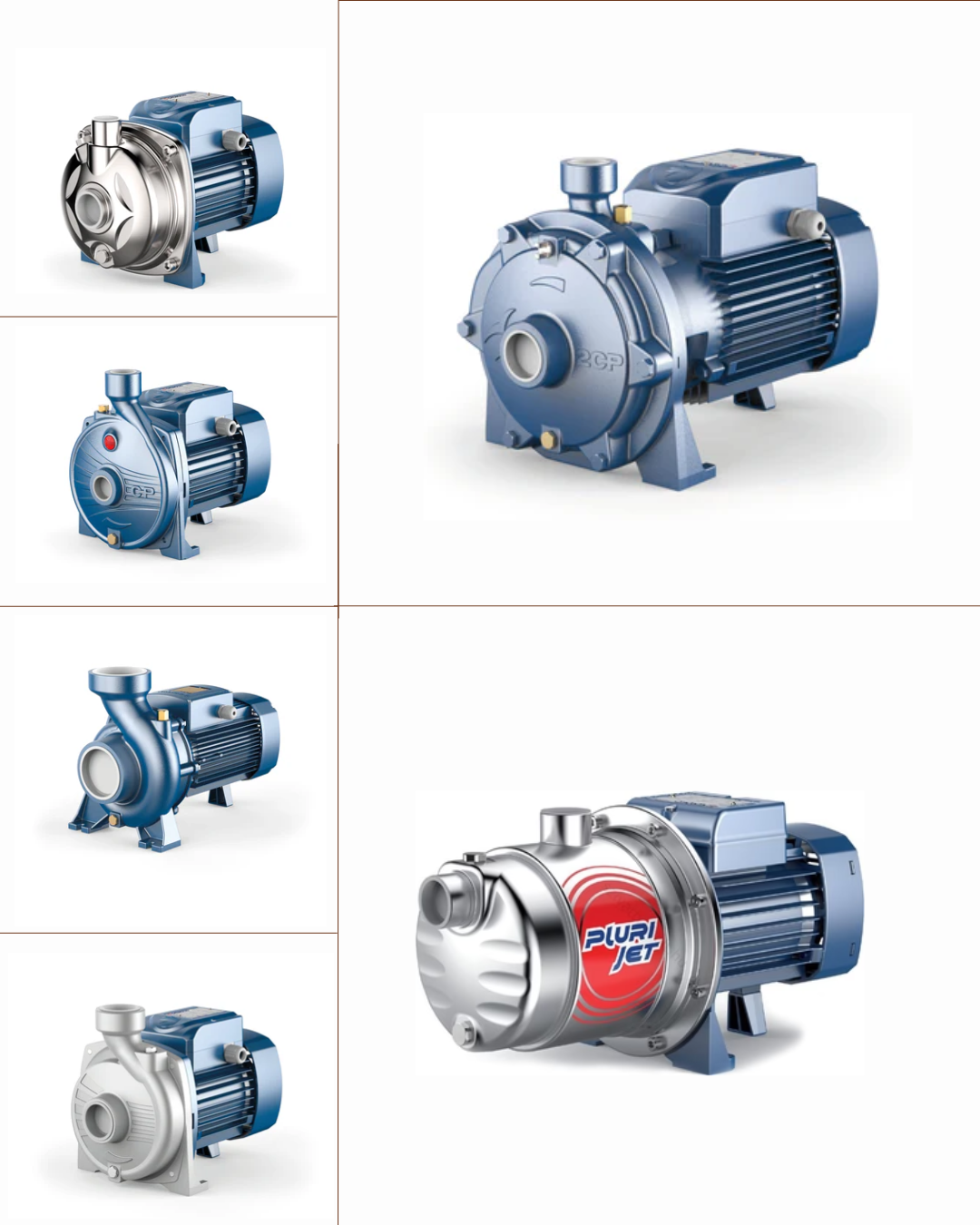Innovations in Water Pump Technology: How the Industry is Evolving
Posted by Allen Wright on
Water pumps have come a long way since their early days, evolving to meet the demands of modern industries, homes, and businesses. Today’s water pump technology is smarter, more diverse, and environmentally friendly than ever before. From heavy-duty industrial water pumps for commercial use to residential water pump booster pumps, the industry is embracing new advancements to keep up with increasing energy demands, sustainability goals, and automation.
In this article, we’ll explore the latest innovations in water pump technology and how they are reshaping the industry to meet contemporary needs.
1. Increased Efficiency and Energy Savings
One of the most significant shifts in water pump technology has been the focus on improving energy efficiency. Traditional water pumps often consume a lot of power to move water, leading to high energy costs. Today, manufacturers are designing water pumps that require less energy while maintaining or even improving performance.
Variable frequency drives (VFDs) are one of the main contributors to energy savings in modern water pumps. VFDs allow pumps to adjust their speed according to the demand for water, reducing energy use when demand is low. This not only lowers electricity bills but also extends the lifespan of the pump, as it doesn’t run at full capacity all the time.
For instance, high-pressure pumps for commercial use now come with advanced energy-saving features that make them more efficient than ever. These pumps are designed to handle large volumes of water without compromising on performance, while still consuming significantly less power compared to older models.
2. Automation and Smart Technology Integration

Automation has been another game-changer for the water pump industry. With the rise of smart technology, water pumps are becoming more autonomous and easier to control. These pumps can now be monitored and controlled remotely through smartphones or computers, allowing for real-time performance tracking and adjustments.
Smart sensors are being integrated into pumps to monitor factors like pressure, temperature, and flow rate. If a pump detects an issue, it can automatically adjust its operation or send alerts to maintenance teams, reducing downtime and ensuring smoother operations. This level of automation not only improves the efficiency of water pumps but also minimizes the need for manual intervention, saving time and labor costs.
For residential water pump booster pumps, smart features are also becoming more common. Homeowners can now monitor and control their water pressure remotely, ensuring that their home’s water supply remains consistent and reliable. These advancements are especially beneficial for homes with fluctuating water pressure or those relying on well water, where consistent pressure is essential.
3. Sustainability and Eco-Friendly Solutions
As sustainability becomes an increasingly important concern for both industries and homeowners, water pump manufacturers are working hard to create eco-friendly solutions. Newer pumps are designed with materials that reduce their environmental impact, including recyclable components and energy-efficient motors. Many companies are also focusing on reducing the carbon footprint of their manufacturing processes.
One example of sustainable water pump technology is the development of pumps that are capable of drawing water from renewable sources like rainwater harvesting systems. By reusing water, these pumps contribute to water conservation and reduce the demand for municipal water supplies.
4. Durability and Longevity

The durability of water pumps has always been a key concern, especially for industries where downtime can be costly. Modern pumps are built to last longer and withstand harsh conditions. Thanks to improvements in materials and engineering, pumps can now handle a variety of challenging environments, from high temperatures to corrosive liquids.
For high-pressure pumps for commercial use, durability is crucial. These pumps are often used in demanding applications such as cleaning, water treatment, and industrial processes, where failure is not an option. To meet these challenges, manufacturers are using corrosion-resistant materials and more robust designs to ensure their pumps can endure tough conditions.
5. Compact Designs and Flexibility
Water pump manufacturers are also focusing on creating more compact, space-saving designs that can fit into a variety of settings. Smaller, more versatile pumps are being used in a wide range of applications, from residential homes to large commercial complexes.
In residential settings, residential water pump booster pumps are now designed to be smaller and quieter, making them ideal for use in basements or other confined spaces. These compact designs allow homeowners to enjoy reliable water pressure without taking up too much space or creating a nuisance with loud machinery.
The water pump industry is evolving rapidly, driven by innovations that make pumps more efficient, sustainable, and user-friendly. With advancements like energy-saving features, automation, sustainability efforts, and improved durability, water pumps are becoming smarter and more reliable than ever.
Looking to improve your water pressure? Check out Power Plus Retailers for the best water pressure booster pump options! Whether you need a water pressure booster pump for residential uses or even a stainless steel pump, we’ve got you covered.
Contact now and enjoy consistent water pressure today!

